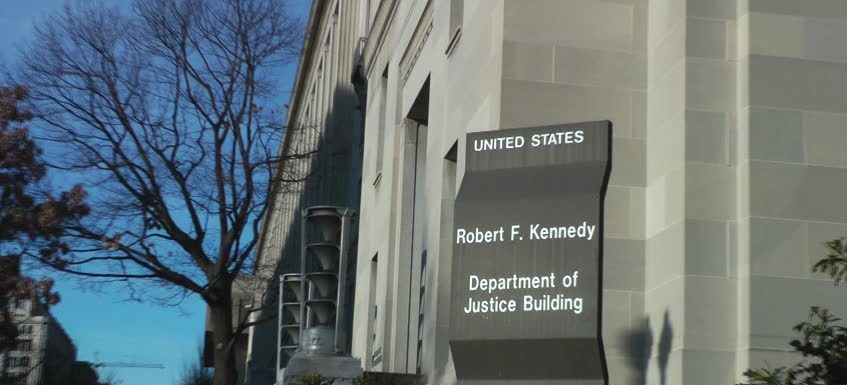The hubbub about former Acting Attorney General Sally Yates’ heroic or un-heroic stand ignores the central issues raised by her conduct. Let’s be unpolitical and as impartial as possible, and take a hard look at what happened here. Let’s ignore that she is a Democrat and that the President is a Republican. None of that matters. The conduct of the Attorney General of the United States, whether acting or otherwise, must be beyond all reproach. In our view, what occurred here is one of the lowest moments in the history of the Department of Justice of the United States. Sally Yates violated her duties. We explain.
Statutory Obligations of the Attorney General of the United States
The duties and responsibilities of the Attorney General are clear under Federal law. We briefly parse through them. We also analyze Ms. Yates’ letter to lawyers in the Justice Department (the “Yates Letter“) announcing her decision not to enforce President Trump’s Executive Order on immigration (the “Trump Order“). Sally Yates violated her duties and responsibilities.
The Attorney General is Merely a Legal Servant to the United States
The Attorney General’s responsibilities are clear under Federal law. First, the Attorney General “shall represent the United States in legal matters generally.” Furthermore, she is to “appear in person to represent the Government in the Supreme Court of the Untied States, or in any other court. . . “
There is no ambiguity. The Attorney General is a legal representative. She is the lawyer, the legal servant. She is an agent for the United States. Her client is the United States. The United States is the principal. The Attorney General does not act as the United States. The President holds the executive power under the Constitution and acts as the United States. The Attorney General acts as the representative of her client, the United States.
Therefore, the Attorney General does not make the policy of the United States. That’s the prerogative of the legislature and the President (and the administrative agencies under the President’s authority). Sally Yates violated her duties by attempting to make the policy of the United States.

Yates’ View of the Power of the Attorney General is Unsupportable in Law
Ms. Yates’ view of her power is far beyond the statutory grant. She recognized that she has the “ultimate responsibility to determine the position of the Department of Justice” regarding the Trump Order. That is certainly true. She pointed out the limited scope of review by the Office of Legal Counsel (the “OLC”) of the Trump Order. But she then began her unusual statement of her grounds for refusing to represent the United States.
She stated that the OLC’s review failed to:
take account of statements made by an administration or it [sic] surrogates close in time to the issuance of an Executive Order that may bear on the order’s purpose. And importantly, it does not address whether any policy choice embodied in an Executive Order is wise or just.
Ms. Yates’ statement is extraordinary. The Attorney General has no power or responsibility to determine whether an Executive Order is wise or just. That is the clear and sole prerogative of the President of the United States. Ms. Yates’ is merely the legal counsel to the United States. Beyond her statutory limitations, legal counsel does not have the right or power to refuse to act on behalf of her client simply because she believes the client’s decision is unwise of unjust. This leads to the next subject.
The Attorney General is a Legal Adviser to the President – But Where is Her Legal Advice?
The Federal statute both mandates the Attorney General’s duties, and provides her advisory obligations. It states that the Attorney General shall “furnish advice and opinions, formal and informal, on legal matters to the President. . . ” The Attorney General must provide legal advice to her client. She is not authorized to make decisions on behalf of the President, either generally or with respect to policy.
Yates Was Free to Indicate in Her Letter That She Provided Legal Advice to the President Regarding the Trump Order
Before we review the statement of responsibility in the context of the Yates Letter, consider this. The public has not seen any written letter of advice or other legal analysis from Ms. Yates to the President. Did she write one? Did she provide the President with formal or informal legal advice regarding the legalities or constitutionality of the Trump Order? For that matter, did Ms. Yates advise him orally regarding the same? The Yates Letter makes no reference to any such advice.
Legal ethical rules preclude the Attorney General from a unilateral release of the contents of any communication to the President. Indeed, attorney-client privilege prevents the disclosure by the Attorney General of the content of legal advice without the President’s consent. But the attorney-client privilege does not extend to the fact that a communication between the attorney and the client occurred. And it does not protect the general subject matter of that communication. It only covers the actual content of the communication. Therefore, Acting Attorney General Yates was free to acknowledge the fact that she communicated with the President. The Yates Letter is devoid of any indication that she provided advice to the President. If she did not provide such advice, then Ms. Yates violated her duties.
What Is Ms. Yates’ View Regarding the Legality of the Trump Order?
Although the Acting Attorney General is prohibited from disclosing the advice she provided to the President, she is free to analyze the law and convey the law’s meaning to the public. The Yates Letter is again devoid of any legal analysis whatsoever. The Yates Letter’s legal analysis consists of this:
My responsibility is to ensure that the position of the Department of Justice [the “DOJ“] is not only legally defensible, but is informed by our best view of what the law is after consideration of all the facts. In addition, I am responsible for ensuring that the positions we take in court remain consistent with this institution’s solemn obligation to always seek justice and stand for what is right. At present, I am not convinced that the defense of the Executive Order is consistent with these responsibilities nor am I convinced that the Executive Order is lawful.
That’s it. Nary a word explaining “why” she believes that the Trump Order is unlawful. Make no mistake, a refusal of the Acting Attorney General to defend a position of the United States is highly unusual, if not historically unprecedented. We admittedly did not research the extent of historical anomaly. But Ms. Yates’ actions present extraordinary circumstances. She refused, as Acting Attorney General, to provide any legal support to the United States regarding an Executive Order. Public confidence in the government is jeopardized in those unique circumstances. It was incumbent upon Ms. Yates, as a dedicated legal servant to the United States and in loyalty to that client, to fully express her legal analysis on such a controversial matter. She chose not to do so. Again, we suggest that Ms. Yates violated her duties.
The “Legally Defensible” Position
Let’s walk through Ms. Yates’ analysis on this point. First, she stated that the DOJ should have a “legally defensible” position. We published yesterday a debate regarding the legality and constitutionality of the Trump Order. Take a look at it here. Without question, “legally defensible” arguments exist that support the Trump Order. It is noteworthy that Ms. Yates simply chose not to make them. The decision is not hers to make. She is obligated to do so. Again, Ms. Yates violated her duties.
The “Best View of the Law” Position
Second, the DOJ should inform its position “by our best view of what the law is after consideration of all of the facts.” Where is Ms. Yates’ “best view of the law?” Nowhere to be seen. And, since when is the DOJ limited to taking a legal position on behalf of the United States that is its “best view of the law?” There are legions of cases where the DOJ promoted positions that were weak or legally unsupportable. Just take a look at the long line of 9-0 decisions by the Supreme Court against the United States. No, the DOJ must only have a “legally defensible” argument on behalf of its client – not necessarily the “best” argument.
“Consideration of All the Facts” Position
Third, the DOJ should take a position in light of a consideration of all the facts. Yet again, where is Ms. Yates’ statement of relevant facts? The only fact cited anywhere in the Yates Letter was a claim that the OLC did not take into account statements made by the administration “close in time to the issuance of” Trump Order “that may bear on the order’s purpose.”
The Trump Order itself has a direct statement of its purpose. The statement is clear and unequivocal. Whether we agree with it, or not, is not relevant. Nor is it relevant whether the Attorney General, as legal adviser, agrees with that purpose. Acting Attorney General Yates failed to acknowledge the stated purpose contained in the Trump Order. She made only vague reference to oral statements “made close in time” to the issuance of the Trump Order. That’s it. No elaboration.
Sally Yates Violated Her Duties – She Had No Right to Refuse to Defend the United States
Let’s give the Acting Attorney General the benefit of all doubts. She believed that there was no legally supportable argument in favor of the Trump Order. Ms. Yates fairly concluded that any position she would take in court would be inconsistent with her “solemn obligation.” The “true” purpose of the Trump Order was illegal or unconstitutional. She believed that the policy represented by the Trump Order was unwise and/or unjust.
Assuming all of this, what is the Acting Attorney General, as the principal legal agent for the United States and adviser to the President, to do? The statute requires her to “represent the United States in legal matters generally.” She therefore had a simple choice. Either represent the United States, or resign. Resignation was the only principled thing to do.
Two things are certain. All Ms. Yates accomplished was a naked politicization of the Office of the Attorney General of the United States and the Department of Justice. And, Ms. Yates had no right, power or authority to refuse to make arguments in defense of the United States. She had no right, power or authority to be derelict in her duty. And that’s exactly what she did.

